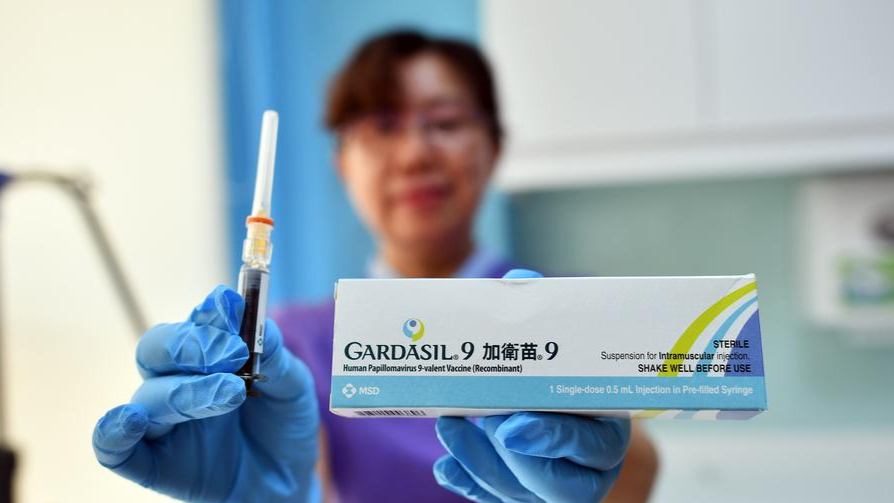
XIAMEN - China approved its first domestically developed nine-valent human papillomavirus (HPV) vaccine on Thursday, according to the National Medical Products Administration.
The vaccine, Cecolin 9, was jointly developed by the Xiang An Biomedicine Laboratory, Xiamen University and Wantai BioPharm. Its approval makes China the second country in the world -- after the United States -- with the capability to independently supply high-valency HPV vaccines.
Since 2019, the vaccine has been through five clinical trials conducted across China, involving more than 11,000 healthy volunteers aged nine to 45.
READ MORE: HPV vaccine makers eye growth overseas
Results from these trials showed that the vaccine provides strong protection against HPV types 16 and 18 -- the same strains covered by the two-valent vaccine -- as well as five other HPV types 31, 33, 45, 52 and 58, with a protection rate of over 98 percent against persistent infections lasting more than 12 months and a 100 percent protection rate against cervical infections.
For girls aged nine to 17, just two doses are sufficient to produce an immune response comparable to that seen in women aged 18 to 26 who receive three doses. For girls aged 15 to 17, it is currently the only two-dose HPV vaccine available in China.
A comparative study showed that the new vaccine offers immune responses comparable with similar international products for at least 30 months after full immunization. These findings have been published in The Lancet Infectious Diseases.
The new vaccine is the latest achievement from the research team that also developed China's first domestically made two-valent HPV vaccine in 2019. In 2021, the two-valent HPV vaccine received prequalification from the World Health Organization (WHO) and has since entered the markets of 21 countries.
READ MORE: Beijing to provide free HPV shots for girls
Cervical cancer was the fourth most common cancer among women worldwide in 2022, according to the WHO. China made free HPV vaccination accessible to approximately 40 percent of girls aged 13 to 14 in 2024, as part of its ongoing work to tackle cervical cancer, according to the National Health Commission (NHC).


